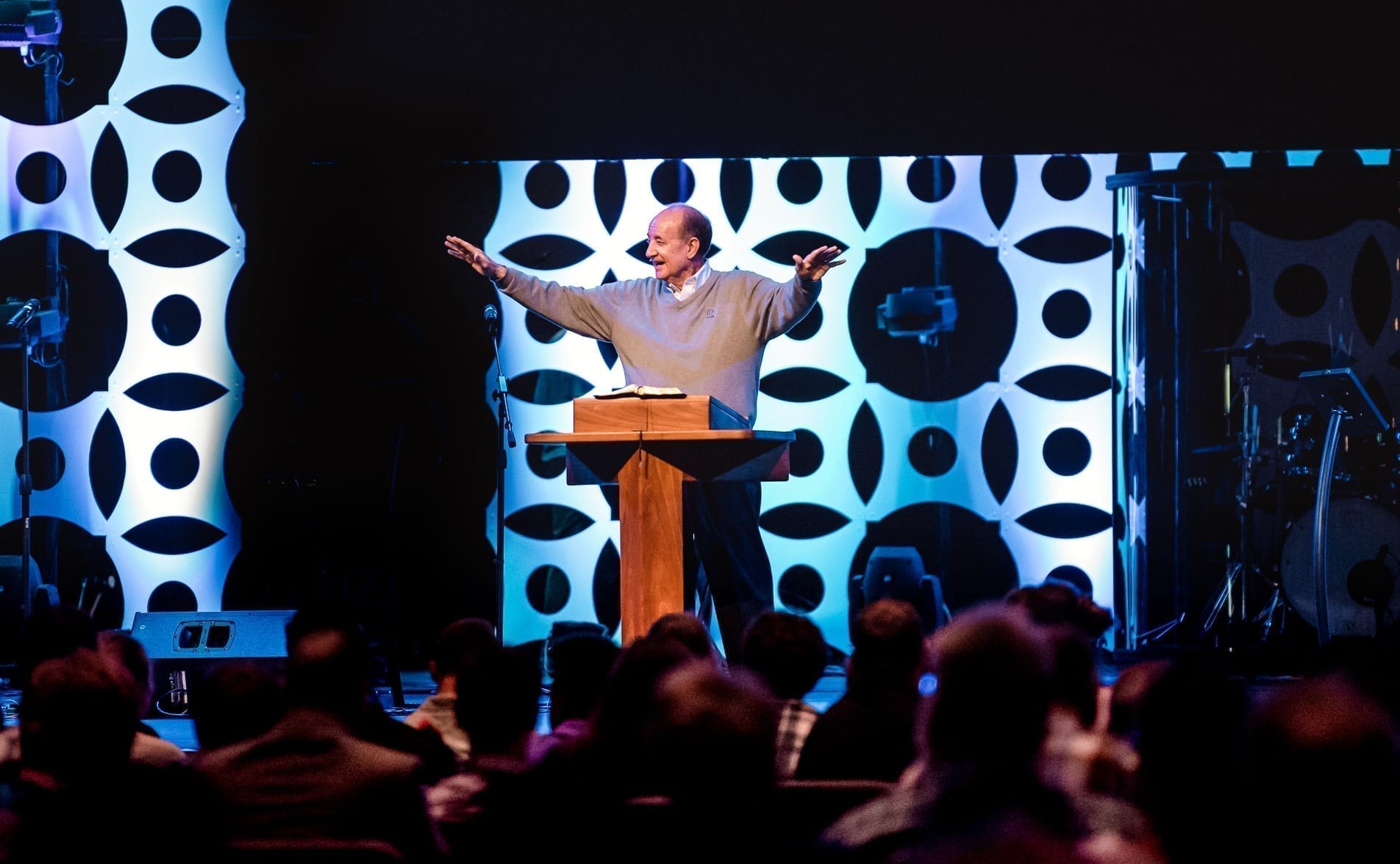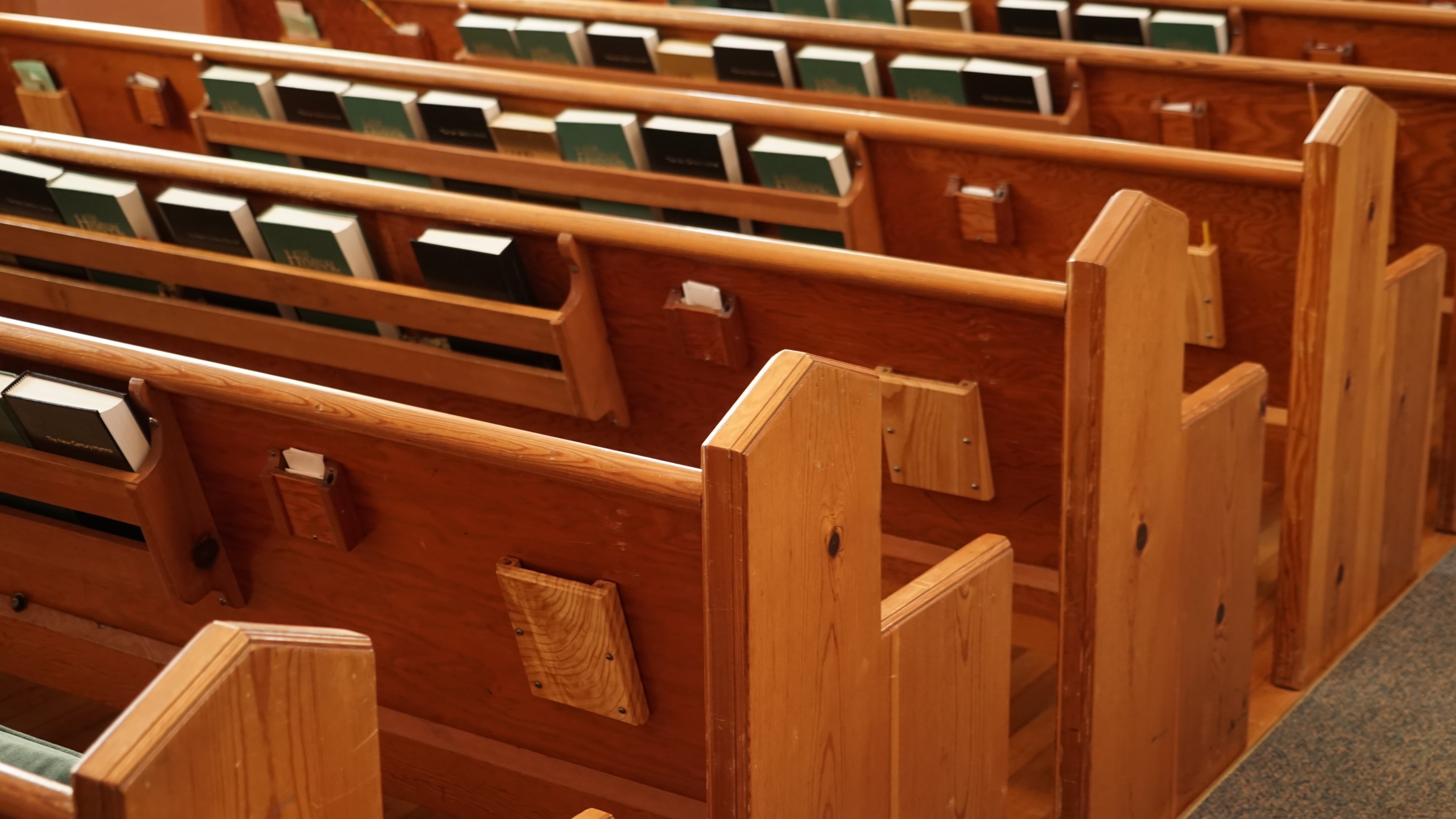On the night of March 11, 2020, Ronnie Floyd sat in his home in suburban Nashville and watched as the NBA put its season on hold. Several college basketball conference tournaments had pressed pause earlier in the day. President Donald Trump addressed the nation. COVID-19 had made its arrival known in the United States. Floyd knew things were changing and changing fast.
Less than two weeks later, he sat in his office in downtown Nashville on a Zoom call with Southern Baptist leaders from around the country and participated in the meeting where the decision was made to cancel the SBC Annual Meeting for the first time in 75 years.
Floyd calls that day, March 24, 2020, “one of the most sobering moments” of his life – “disheartening” and “discouraging” – because he and his team were ready for Orlando, and in a moment it all changed.
Now looking back a year later, the challenge remains – not just for Floyd and the Southern Baptist Convention (SBC) Executive Committee he leads as president and CEO, but for all Southern Baptist entities, state conventions, local associations and churches.
At a recent meeting of denominational leaders on the campus of Southwestern Baptist Theological Seminary (SWBTS) in Fort Worth, Texas, several entity heads echoed Floyd’s lament over a year lost to COVID-19.
SWBTS president Adam W. Greenway said the “most notable impact was cessation of in-person classes last spring and not resuming them until the fall semester with social distancing.”
Even though every on-campus class has an online section accompanying it, he regrets the cessation of other student activities and gatherings.
“We don’t have the same number of folks able to exercise the spiritual gift of hanging out, which is of course part of the on-campus experience,” Greenway said. “Thankfully with chapel resuming this spring with a once-a-week schedule, we are beginning to see some elements of what feels more normal coming back. I’ve been most blessed by the flexibility of our faculty and our staff to be able to adapt to make the student experience as non-disrupted as possible.”
The disruption hit the North American Mission Board (NAMB) financially, as it did almost every organization. But the timing of the pandemic made it even worse. Most churches stopped meeting in person the second week of March 2020. NAMB’s annual Week of Prayer for North American Missions and Annie Armstrong Easter Offering (AAEO) kickoff was the next week.
The result was a total offering just under $50 million – about $12 million less than the previous year.
But NAMB president Kevin Ezell wasn’t upset over the drop in revenue. Some expected a 50% drop, so when the final numbers came in and it was just 20%, Ezell was overwhelmed by the generosity of Southern Baptist churches even in the midst of a pandemic.
“That gave me great faith in our churches,” Ezell said. “Our people surprised their pastors and their state leaders by the resiliency of their giving. I truly believe last year’s AAEO was the greatest AAEO offering ever.”
Revenue drops also affected Lifeway and Woman’s Missionary Union (WMU).
Lifeway missed budgeted revenue by a staggering $45 million. Expense reductions along the way saved $30 million and resulted in a realized loss of just $15 million.
WMU saw a 50% drop in revenue. But cost-cutting measures and a positive stock market meant it ended the year in the black.
However, both resource providers face challenging headwinds as the pandemic lingers.
Large Lifeway events are yet to come back, though virtual events and conferences have helped. Summer camps for students – another major revenue casualty of 2020 – are still scheduled for later this year.
At WMU, Sandy Wisdom-Martin wonders if people are going to come back to church. Some good news came in a recent Lifeway Research study that found nine out of ten American churchgoers say they are likely to attend at least as often as they did before the pandemic struck.
There’s still a question as to whether or not churches will have as many in-person activities as they did before COVID-19. After all, for the better part of a year, people were being trained not to be at church in person.
WMU is in the process of exploring different business models to replace its model based on focused, in-person small groups using printed materials.
“We’ve been living on one model our entire life,” Wisdom-Martin said. “The print world has been decimated. [The pandemic] sped up the process of having to find a new business model.”
While he isn’t necessarily looking for new business models, Lifeway President Ben Mandrell is moving Lifeway toward a “laser focus” on what it does well: ongoing curriculum, Bibles, events and training.
“We specialize in coming alongside the church leader,” Mandrell said. “We’ve come back to the church leader as the center of our bullseye. How do we really serve the church leader? In the day of Amazon, shipping single products to people is really difficult to stay competitive in. We do our best work in things that churches need in large supply. We are in tune with what they need, and we provide it.”
The challenges still remain, but Mandrell identified training as one area Lifeway can take advantage of due to the pandemic.
“If you would have said a year ago that you were going to have training over Zoom, no one would have come,” he said. “But Zoom has become so normal to people in the culture that if you have training, there’s probably going to be a live component. But if you can’t make it you’ll have the option to join by Zoom. That’s going to be a big advantage for churches in terms of training. So we want to continue to be in the forefront of that.”
With curriculum, Mandrell emphasized it is not enough to just give people information.
“There’s an experience piece to it,” he said. “That’s why we have the new mission statement. We want to create experiences that fuel ministry. You can get content almost anywhere, but we are exploring digital tools to help small groups create community and stay connected in the group. Small groups is where our specialty lies. So how do we create digital products that are simple to use and bring community? I don’t think we’ve cracked the code just yet, but we are working on it.”
Those connection points are also something the International Mission Board (IMB) has picked up over the past year. With more than 1,000 missionaries on an unscheduled temporary stateside assignment due to the pandemic, IMB’s Kairos project came into focus.
“We gave those missionaries several dozen churches to connect with,” IMB President Paul Chitwood said. “Churches we had not connected with in a long time or ones where we could deepen the connection.”
Those connections as well as a shift to online training led to more engagement with the IMB from churches. The IMB’s “Every Church. Every Nation” summit was planned for an in-person crowd of 1,500 people last fall. Instead the event was held online and saw more than 5,200 people engage in the livestream and hundreds more later on.
As with IMB, other entities have seen silver linings to the pandemic.
Lifeway saw a dramatic increase in Bible engagement with more than 2.4 million Bibles sold in 2020. Nearly every entity transitioned its workforce to remote work for a time, and none reported significant losses in productivity or employee engagement.
Ezell commended employees at NAMB for working “remotely and effectively.” Greenway noted seminary faculty “learning that they can do things they would have thought they could not do otherwise.”
“Some of our faculty didn’t realize how much they could come to appreciate and enjoy online teaching,” Greenway said. “Also, our students, many of whom are having to balance greater burden – ministry, family, finances, work and seminary. Their commitment and determination to continue to pursue seminary education even in the midst of all these other challenges gives me great encouragement. They are willing to overcome their own levels of adversity to be able to fulfill God’s calling on their lives. At the end of the day SWBTS is here for the students. If you don’t have the students, you don’t need a faculty – much less a president.”
Now a year later, every SBC entity is different than it was before the pandemic, but things are starting to return to a sense of normalcy.
Most employees are back in the office. Most classes are being held in person. Most missionaries have returned to their overseas assignments. Most churches have resumed in-person worship.
Of all events involved in the return to normalcy, weekly in-person worship is what Floyd desires to see the most. Especially at one particular Nashville church – Forest Hills Baptist.
Floyd was filling the pulpit for the month of March 2020 at the church as they were seeking a pastor. That first Sunday, March 1, the pews and seats were full. Everything was normal.
The next week, on March 8, Floyd preached at a church in Louisiana to fulfill a previous commitment.
When he returned to Forest Hills on March 15, in-person attendance had been paused, and Floyd preached to a camera in an empty room. He finished his commitment later in the month but never preached to a crowd at Forest Hills again.
Floyd wants another shot in that pulpit now that Forest Hills has returned to in-person worship.
“If I ever go back to preach at Forest Hills – and I pray I do – it would be wonderful to know people are coming back, because the last time I preached once and they didn’t come back the next three weeks,” he said.
(EDITOR’S NOTE – Jonathan Howe is vice president for communications at the SBC Executive Committee.)


